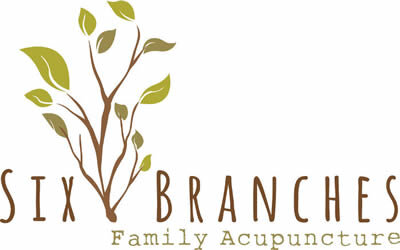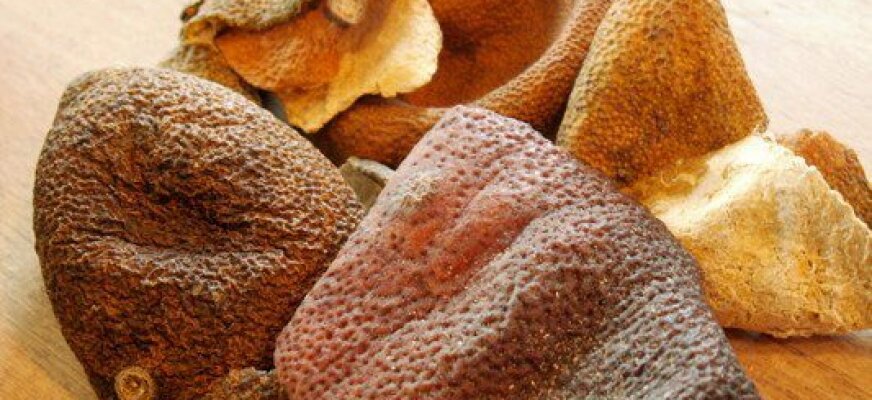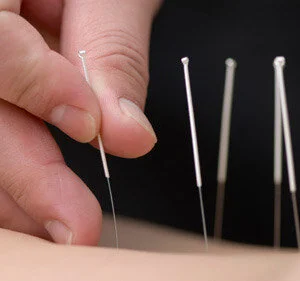Chinese herbalists have been using bark, roots, seeds, and flowers to treat serious medical conditions for over 2,000 years. In modern times, pharmaceutical companies have made big money by isolating certain compounds from plants and replicating them synthetically. It is within this context that I want to highlight a new study from Harvard School of Dental Medicine that has isolated molecular properties in the Chinese herb Chang Shan, and found a use for it in treating auto-immune disorders like Multiple Sclerosis, Rheumatoid Arthritis, and Inflammatory Bowel Disease.
Read moreAcupuncture is Great for Children!
People are often surprised when they hear that acupuncture is great for children. Acupuncture, pediatric massage and herbal medicine are practical approaches to children’s and teens’ health care that focus on treatment of symptoms in addition to resolving the root causes of an illness. Many parents like to use acupuncture and massage first because it is less invasive and doesn't have unwanted side effects. Parents learn about ways to help their children stay healthy at home with pediatric massage and dietary approaches, and kids learn more about how their bodies work and heal.Pediatric acupuncture is a great way to address a range of conditions such as:
Acne
ADD/ADHD
Allergies
Anxiety
Asthma
Chronic Colds
Cough
Constipation
Diarrhea
Ear and sinus infections
Eczema
Low immunity
Menstrual cramps/PMS (teens)
Pain of all kinds
Vaccine preparation or recovery
Do You Really Use Needles With Children?
We can use needles with children who agree to try them, but we call them "taps" With small children it is effective to just tap in a small needle and then remove it, so "taps" is an easily understood name. We only use very small, very thin needles, and only if the child agrees to try "taps". Once they've tried taps, most children are hooked! For children who don't want to try taps, we can use massage and other tools to activate the acupuncture points.
Is Acupuncture Safe For Children?
Yes! Researchers from University of Alberta published a study in the journal Pediatrics that looked at data from around the world, collected over a span of 60 years. They find that acupuncture is safe for children, concluding that most of the few adverse effects that were seen were caused by sub-standard practices. "Our results support those from adult studies, which have found that acupuncture is safe when performed by appropriately trained practitioners."
New Screening Guidelines for Lung Cancer + TCM can help!
If you know anyone who has battled lung cancer, you know that one of the biggest obstacles to survival is the fact that people are often diagnosed in later stages of the cancer. One reason for this trend is that there have not been widely recommended, reliable, screening procedures for catching the cancer earlier on in its development. That changed this month, as the National Comprehensive Cancer Network (NCCN) published guidelines recommending the use of low-dose computed tomography (LD-CT) screening for select individuals at high risk for the disease. This new guideline is a category 1 recommendation, making it more strongly recommended than mammography or colonoscopy for high-risk individuals.
For the target group of heavy smokers 55 to 74 years of age, or anyone who has smoked 1 pack a day for 30 years (or 2 packs/day for 15 years), regular, annual LD-CT scans are recommended. Medscape quotes Mark Kris, from the Memorial Sloan-Kettering Cancer Center, stating, "Finally we have a screening test that meets that gold standard and has a substantial opportunity to decrease the death rate for lung cancer."
When it comes to treatment for lung cancer, the same Memorial Sloan-Kettering Cancer Center finds that acupuncture can be very useful for treating the symptoms* of the disease as well as the effects of chemotherapy and radiation. They state, "Acupuncture reduces many symptoms experienced by cancer patients in all stages of treatment, including [shortness of breath], fatigue, hot flashes, sexual dysfunction, urinary problems, osteoarthritis, [nerve pain], [dry mouth], and more. Most relevant to patients in the ICU, acupuncture can relieve anxiety, depression, stress, and pain, and it can reduce the amount of opioids required to maintain patient comfort."
Western MDs are often hesitant to use TCM herbal medicine and vitamin therapy during cancer treatment because many drug-herb interactions are unknown. There is preliminary evidence, however, that herbal medicine and vitamin supplementation can improve outcomes for people with lung cancer. A 10-year retrospective lung cancer survival study published this fall by the Pine Street Foundation, found that long-term herbal and vitamin therapy, combined with conventional cancer therapy, reduced stage IIIA deaths by 46%, stage IIIB by 62%, and stage IV by 69% compared with conventional therapy alone. Promising news from the folks at Pine Street!*
Just to reiterate, TCM is not used to "cure" cancer, but is used to treat symptoms and improve quality of life as people go through treatment.
Laughter Is Good For The Heart ... but you knew That
One of the main tenets of Chinese Medicine is that our emotions play a role in our health and physical functioning. In the last few decades, Western science has begun to understand this idea in a number of ways, whether it's shown how stress affects the body, how anger and depression keep people from recovering faster, or that laughter is good for you.
In TCM, the emotion that belongs to the Heart is Joy. We all know that Joy can help to heal the heart. (On the other side of the spectrum, too much joy (ie. mania) can also injure the heart fluids.) In the Western medical world, Michael Miller, a researcher at the University of Baltimore Medical Center, has researched joyful experiences, and how they help the heart function better. In one study, Dr. Miller found that people with heart disease were less likely to find humor in situations, to recognize humor, or use it to get out of uncomfortable situations. They generally laughed less, even in positive situations and they displayed more anger and hostility. In another study, he looked at the effects of listening to (self-selected) joyful music vs. anxiety-producing music. He found that listening to anxiety-producing music constricted the blood vessels (making the heart work harder to circulate the blood and raising blood pressure), while listening to joyful music opened the blood vessels (easing the load on the heart muscle and lowering blood pressure).
Now, Dr. Miller has reported on another study, yet to be published, that shows that laughter has similar effects on our blood vessels.
"We want to maintain good vascular health, and we do that by maintaining a good diet and good regular physical activity, but it turns out that emotions also play an important role here," Miller recently told the media during a morning press conference at the European Society of Cardiology Congress (2011).
These researchers promoted laughter by showing movies or segments from Saturday Night Live to really make people laugh. They also screened intense segments of dramatic movies, such as Saving Private Ryan. After each movie, endothelial function was measured in the blood vessels. After watching the scene from Saving Private Ryan, blood vessels constricted by as much as 30% to 50%, whereas vasodilation occurred when investigators measured vascular function in subjects watching the comedies. They also observed that vasoconstriction and vasodilation can occur quickly, with the funny movies reversing blood-vessel contraction that occurred after watching the stressful D-Day scene. They found that the effects of laughing for 10-15 minutes last in the body for up to an hour and can have similar effects to exercise for heart health.
Maybe this all seems obvious. Even if TCM has been saying this for 2,000 years, the more Western Medicine recognizes the ways that emotions affect our health, the better!
(Photo credit: Michael Kuhn)
Good Vibrations
How does acupuncture work? Yes, acupuncture needles manipulate qi flowing in meridians to balance the body, but what does that mean in our modern physiological understanding of the body? This is a question that the scientific community has not been able to answer definitively. There are a number of people researching various aspects of the question. Previously on this blog, I hypothesized that the concept of Qi is really a metaphor for the chemical and electrical processes in the body. If you've ever wondered how acupuncture works, you're not alone.
Well, an important study was published in July by the Europoean Journal of Physiology which reports on that very topic. The study, performed by electrical engineers at Columbia and medical researchers in Hong Kong, examined what happens on a cellular level when an acupuncture needle is inserted into an acupuncture point. They found that when bodily tissue is pierced by a needle while being manipulated, slow-moving acoustic waves are sent into the muscles. These waves then trigger inter-cellular calcium flow. Calcium then interacts with white blood cells to produce endorphins that help alleviate symptoms such as pain and nausea.
The study also determined that the effectiveness of acupuncture depends on how accurately the needle hits the acupuncture point. The acoustic waves generated by acupuncture can travel between six and eight centimeters along the grain of pierced muscle only when the needle is inserted on an acu-point. Needles inserted into places that were not acu-points also sent acoustic waves, but the waves did not travel as far or as widely.
As with all science, since this is the first study to research this aspect of acupuncture's mechanism, we'll need to see what further research uncovers. However, these findings appear to be an important development!
Step Away from the Hotdog...
4811393826_7b6e4faeaf_b
The largest study to date on the relationship of stroke to red meat consumption suggests higher intake of processed meat, but not fresh red meat, is associated with an increased risk for stroke.
Read more








